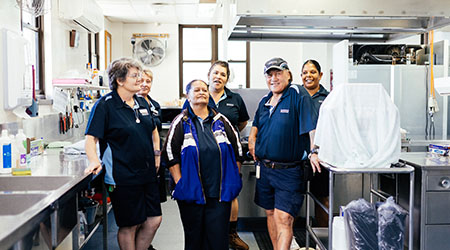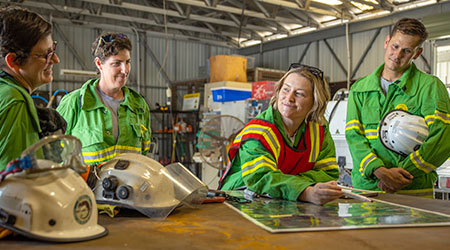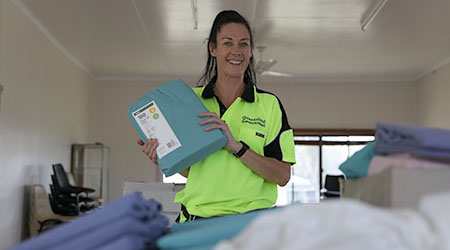Our sector
Who is the sector?
Queensland’s public sector workforce serves their community in many ways, across many locations.
We know from workforce surveys that many people working in the sector believe their work has a positive impact on the lives of Queenslanders.
Queensland’s public sector is made up of over 100 different organisations—varying in size from around 20 employees to large departments with over 100,000 staff. We work throughout the state with more than half of the sector working outside of our largest city.
Most public sector work involves delivering services directly to Queenslanders—including as teachers and teacher aides, nurses and midwives, allied health professionals, ambulance officers, scientists, social workers, registry officers, or park rangers.
A much smaller proportion of our public sector is working behind the scenes to support the delivery of these frontline services. These roles relate to administration, communications, human resources, information and technology (IT), and policy development and implementation.
It’s not just our roles that are diverse.
We are also committed to building a workforce that reflects the diverse community we serve. This allows us to understand and connect with our communities even better.
We are already a multigenerational workforce, and we are committed to ensuring equitable workforce representation for Aboriginal peoples and Torres Strait Islander peoples, people with disability, women in leadership, and those from culturally and linguistically diverse backgrounds. We also remain committed to enhancing policy, procedures and practice to improve employment outcomes for our LGBTIQ+ workforce.
What unites our sector?
Working in the public sector is more than just a job.
For many, it generates both pride and purpose through serving the community and the government of the day.
The public sector has the potential to make a real difference and impact to people’s lives now and into the future.
Public sector employees are held to high standards—both by the government we advise and serve, and the broader community who rely on us for the services they need.
It is critical that we earn the trust of government and the community through the way we work, no matter what role we are in or which public sector organisation we work for.
We may use different skills, professional knowledge and experience to do our work, but there are common, fundamental expectations which apply to everyone who works in the public sector.
We all build and maintain trust by working with integrity. This means consistently making sound and ethical decisions, demonstrating respect for everyone we interact with, resolving and managing personal interests which may conflict with our professional obligations, providing objective and impartial advice, and engaging in good faith with the community.
Each one of us works for the benefit of our diverse community by effectively managing public resources, and striving to deliver excellent services which respond to the priorities of government and the needs of the community.
We all have a responsibility to uphold our democratic system of government by doing the right thing as individuals, and by implementing government’s decisions faithfully and independently.
Maintaining trust requires us all to work diligently and transparently. This means we must do our work carefully and consistently while also making sure we deliver what is needed, when it is needed.
Government and the community trust the public sector with a lot, not just delivering essential services, but also thinking about the future by supporting government to tackle complex, long-term challenges.
Embodying these common, fundamental expectations—day in and day out—allows us to demonstrate that we are worthy of this trust.
This truly sets us apart from other sectors.
What is objective and impartial advice?
Every person who works in the public sector is required to provide advice as part of their job—whether that advice is directed to a minister or a manager, is about a policy proposal or an operational decision, whether they are working on the frontline or supporting the frontline.
This advice must be honest, balanced, apolitical, serve the public interest and be based on the evidence available.
Providing the best advice at the right time is key to the craft of public service. It ensures decision makers have the information they need to make the best decision possible.
Focus areas
-

Work
Our ways of working
-
Outcome 1
Our ways of working inspire trust in government.
-
Goal 1
We are better equipped to respond to complex challenges.
3 actions -
Goal 2
We are better connected to the community.
2 actions
-
-
-

Workforce
Our capability
-
Outcome 2
Our people are ready to meet any challenge.
-
Goal 3
We better enable people to build their public sector experiences.
4 actions -
Goal 4
We better identify future leaders and grow diverse potential.
3 actions
-
-
-

Workplace
Our environment
-
Outcome 3
Our workplaces support our people to serve their community.
-
Goal 5
We provide better opportunities for current and future public servants to perform at their best.
2 actions -
Goal 6
We better support our people to make decisions that serve the interests of Queenslanders.
4 actions
-
-








